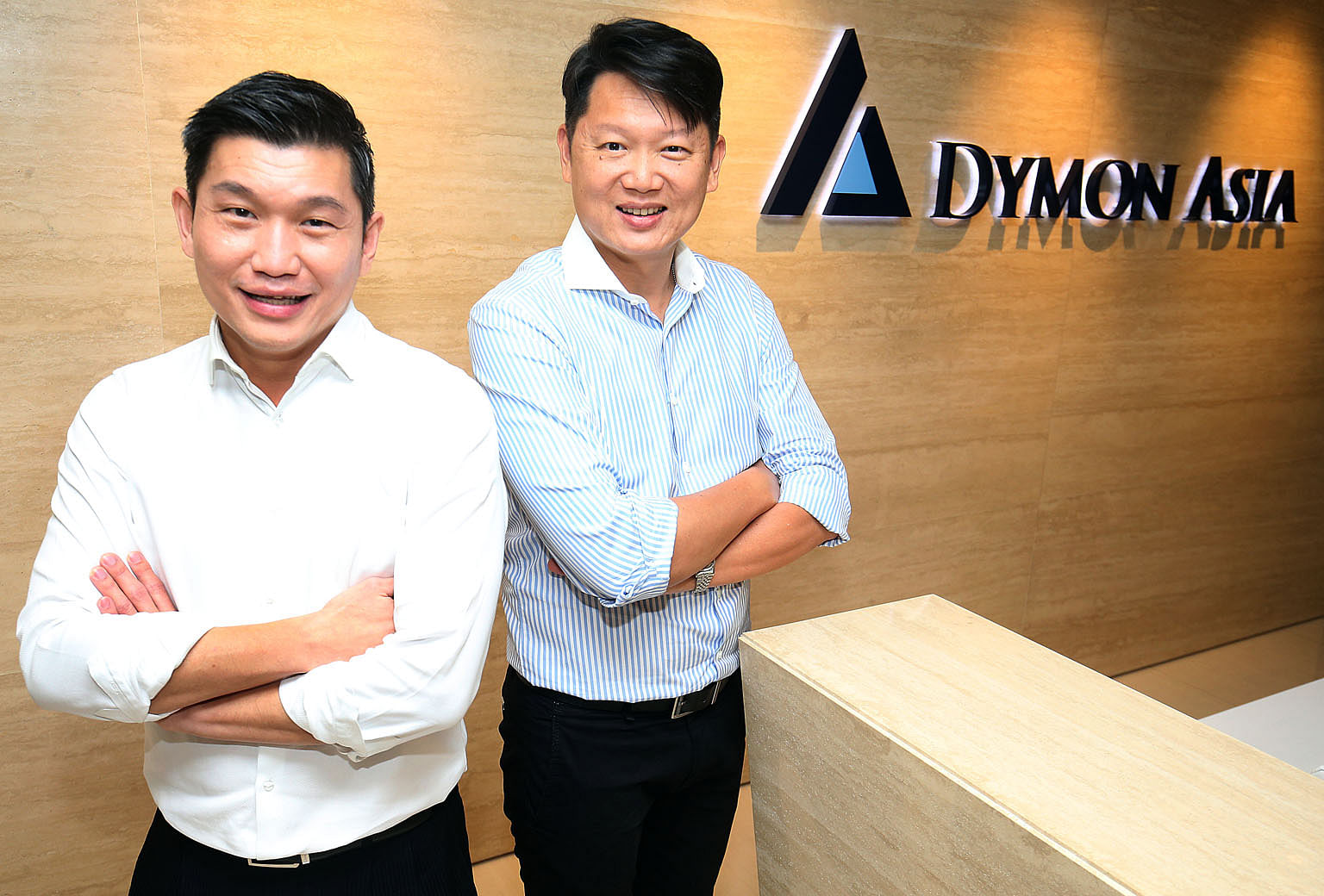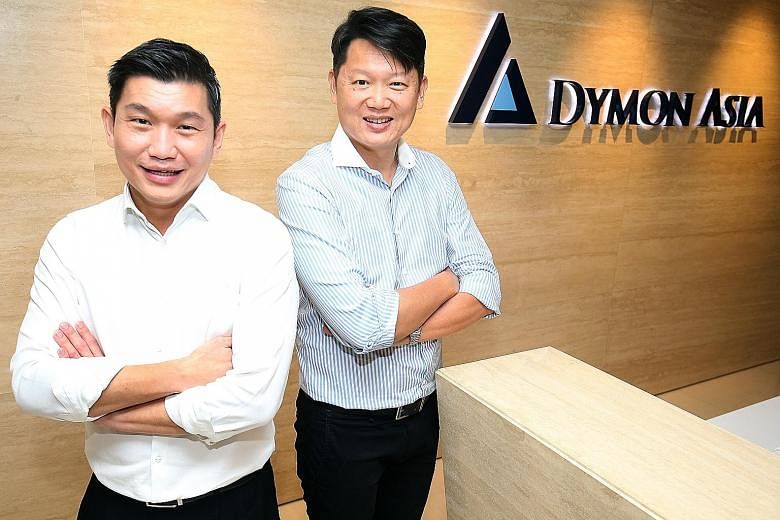When Danny Yong first started work as a financial trader at an American investment bank in 1997, he felt like the dumbest person in the company.
He was a first-class honours graduate but nothing he had studied in his four years at university seemed relevant or helpful to the job.
He knew zilch about trading and had to learn everything on the job: doing it, learning from others and reading stuff.
Sounds familiar?
As he recounted this to me, I cast my mind back to my early years as a journalist for this newspaper.
I had studied mechanical engineering, which was as useful to the job as astronomy, and had felt as lost in the newsroom.
How many people would have had the same experience, except perhaps doctors, lawyers and professionals in occupations that require formal qualification.
For the rest, in administration, sales, management and, yes, journalism, as well as hundreds other jobs, it doesn't seem to matter what you have studied.

Yet bosses and their human resource departments insist you have a university degree or you won't get past the first recruitment round.
Why is this so?
Most of us shrug our shoulders, resigned to the reality that this is how the world works, even if we know from our own experience that it isn't right.
But not Danny.
So strongly did he feel that the conventional way is wrong, he started an initiative called Tangent to change the way people are hired.
It is part of a philanthropic organisation, The Majurity Trust, which he also founded.
What is important, he reckons, is to identify the qualities that really matter in a job by studying the characteristics of those already doing it in the company, particularly top performers.
Then, find candidates who best match these attributes, never mind if they have not gone to university or have had no previous experience.
Tangent has devised a sophisticated way of doing this, which involves existing staff taking psychometric tests to obtain a profile of their characteristics. Then, the same tests are given to candidates for these jobs, to select those with the best fit.
What are some of the qualities being tested?
For one particular job, they include: ambition, conscientiousness, creative personality, curiosity, decisiveness, emotional intelligence, innovativeness, mental ability, mind-reading, patience, risk-taking, self-monitoring, team orientation and work ethic.
Are these attributes more important than having a university degree?
Danny believes so.
He should know because that list was for jobs in the company he runs and co-founded in 2008, Dymon Asia, a highly successful investment fund managing US$5.7 billion (S$7.5 billion).
Dymon will be Tangent's first client and the plan is to hire eight to 10 recruits who will do stints in the company's various departments. During the job rotation, any department head can ask to keep a recruit, and make him or her part of the team.
It is a radical departure for Dymon which traditionally hires top graduates from the best universities worldwide.
Now, under this pilot scheme, educational qualification and prior experience are not required.
For Danny, it is not just about helping companies hire better, but also about giving those who might not have taken the conventional route to academic excellence a chance to prove themselves.
This is especially important in Singapore with its overly competitive examination-oriented school system. Not everyone does well in such a system, but he may have other exceptional qualities that matter.
For Danny, anyone looking to work at Dymon must have grit, creativity, a willingness to try and to adapt after failure.
Think how many people with these qualities might miss out on the opportunity in an overly rigid hiring process skewed towards academic achievement?
In fact, Danny made his first unconventional hire last year after reading about a Nanyang Technological University (NTU) engineering student who was struggling to make ends meet after his father died of cancer and his mother was diagnosed with dementia.
He says he was struck by Isaac Mung's resilience in the face of daunting odds and made him an offer to join Dymon. Isaac left NTU before completing his studies and is now one of Dymon's best performing research analysts.
Danny is quick to stress that he did not start Tangent as a form of charity. Its aim is to help companies hire the most suitable people and it is working with global executive search company Egon Zehnder, and Perception Analytics which specialises in psychometric testing.
I hope it succeeds because Singapore needs to have as many of its people as possible with different abilities contributing in areas that make use of their talent and interest.
If Tangent succeeds, and more companies follow suit, it will make for a more rounded society, moving it away from one with a narrow definition of success. But it will be an uphill task because the existing mindset is so entrenched, shaped by the school system and its emphasis on academic results.
To be fair to the Government, it is trying to shift the focus to skills and lifelong learning. But the changes are taking place too slowly and the education system remains exam-centred. It is hard to alter this mindset if employers continue to hire based mainly on a candidate's academic achievements.
Tangent's approach attacks the source of the problem by showing bosses another way to recruit based on a detailed knowledge of what the job requires.
There is a larger issue about what Danny is doing and it is departing from the norm and a set way of thinking and doing things.
In Singapore, too many people think alike and follow the crowd, believing in the safe rational choice. For a small country, this can be very damaging because it results in a risk-averse culture lacking in diversity and creativity.
Some people worry the Government suffers from groupthink because too many ministers are former civil servants and army generals.
But my bigger worry is that the whole country might be afflicted with national groupthink because we go through the same education system and the same centrally managed, tightly organised system that is Singapore Inc.
Even if the prescribed solution is right for some, if every single person does likewise, it can lead to major problems. The property market is a classic example: For an individual, it may be the right time to buy, but if everybody buys at the same time, a property bubble will form.
How to encourage greater diversity and willingness to try different ways to make Singapore a better place to live and work?
Encourage people like Danny who have new ideas and are prepared to spend time and resources to try them out.
For those interested in applying to be hired by Dymon in an unconventional way, go to the website GoTangent.sg/dymonasia.
Be prepared to have your grit and curiosity tested.
• The writer is also a senior fellow at the S. Rajaratnam School of International Studies


